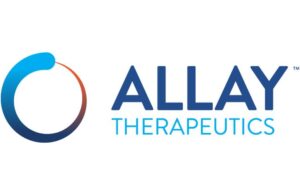 Evonik announced today that it invested in Allay Therapeutics and its implant for treating pain after knee surgery.
Evonik announced today that it invested in Allay Therapeutics and its implant for treating pain after knee surgery.
Inserted directly into the knee, the Allay implant may relieve pain for up to three weeks, according to a news release. Previous solutions worked for a maximum of three days, the company said.
The technology helps promote the recovery process and potentially reduce or eliminate the administration of common opioid painkillers. Those include morphine or oxycodone. Using biodegradable polymers from Evonik, the new type of pain therapy could ensure the delivery of active ingredients over a longer period.
“Our products may provide patients with pain relief exactly when they need it most – for weeks instead of days. This would significantly improve and accelerate the recovery process,” said Adam Gridley, CEO of Allay Therapeutics.
About the implants
Allay designed its implants at about the size of a coin for placement around the implanted knee joint at the end of surgery. They consist of a proven local non-opioid anesthetic and polymers from Evonik. The anesthetic blocks the transmission of pain signals to the spinal cord. This stops the pain impulse before it reaches the brain.
Evonik said Allay succeeded in extending the delivery of up to three weeks through a novel active ingredient polymer architecture. The polymers ensure the delivery in a controlled fashion over a long period as the implants gradually dissolve before the body breaks them down.
“We are pleased to be able to support our partner Allay in developing this promising innovation. It can fundamentally change pain management and take away patients’ fear of surgery,” said Paul Spencer, head of the drug delivery & products line in Evonik’s health care business. The Evonik health care business supplies the biodegradable polymer processed in the Allay implant.
According to the company, the technology could be adapted for other orthopedic and soft tissue surgeries.
“Allay’s pain products can become a game-changer in postoperative pain management,” said Bernhard Mohr, head of Evonik Venture Capital. “They may reduce the problems that opioids bring, such as dependence, further hospitalization, lengthy rehabilitation, and overall costs to the healthcare system.”

